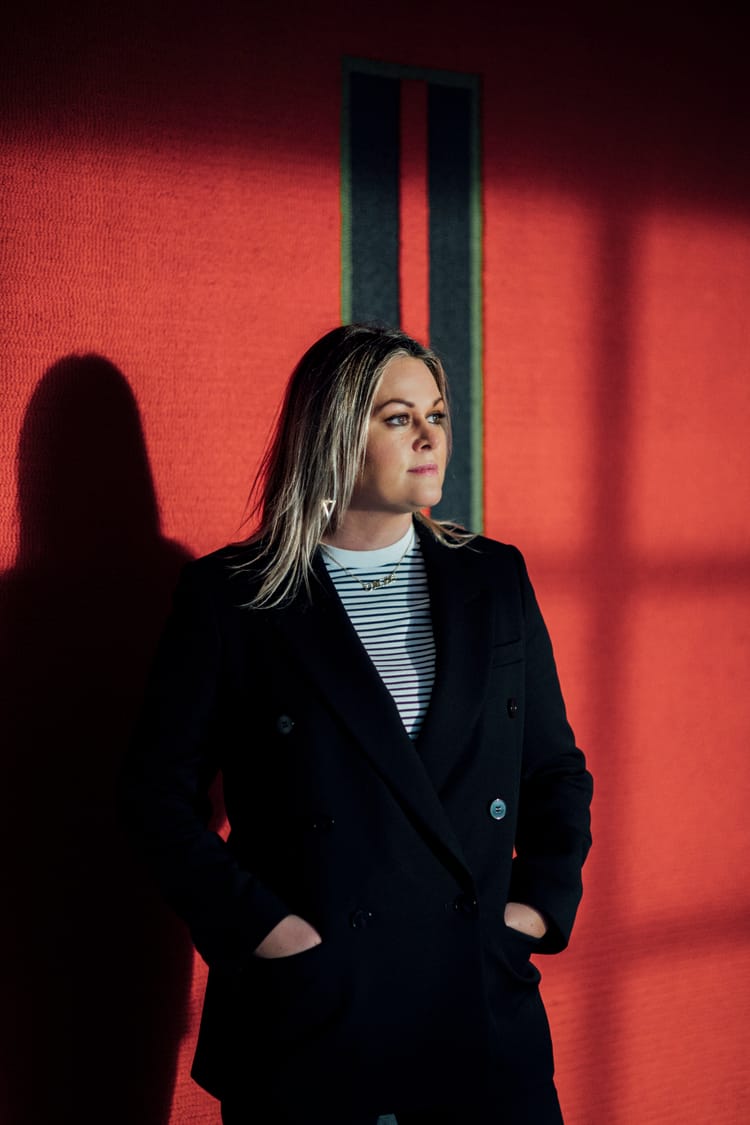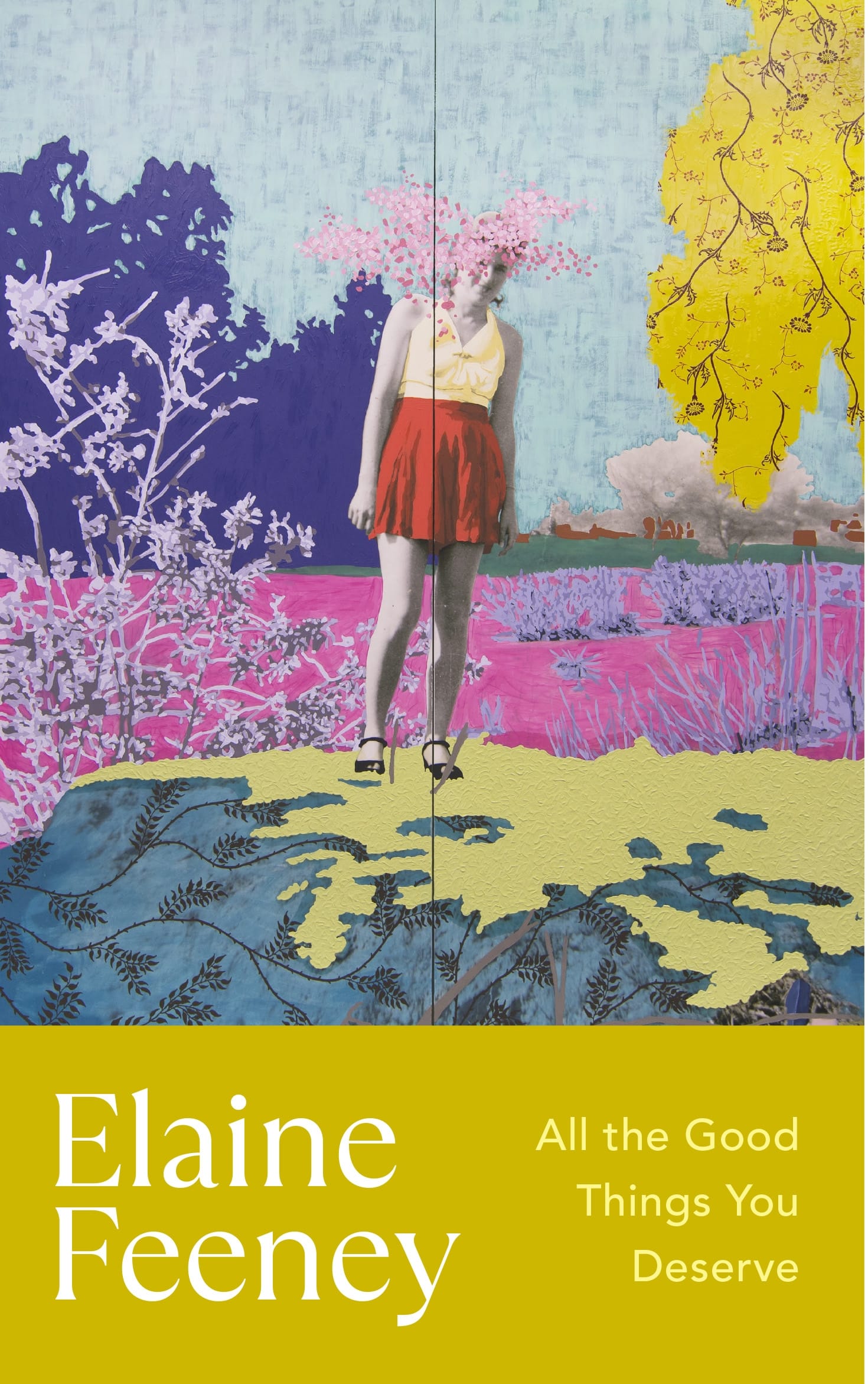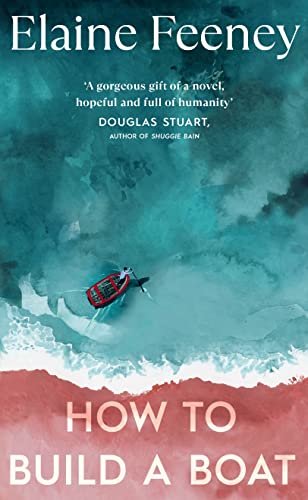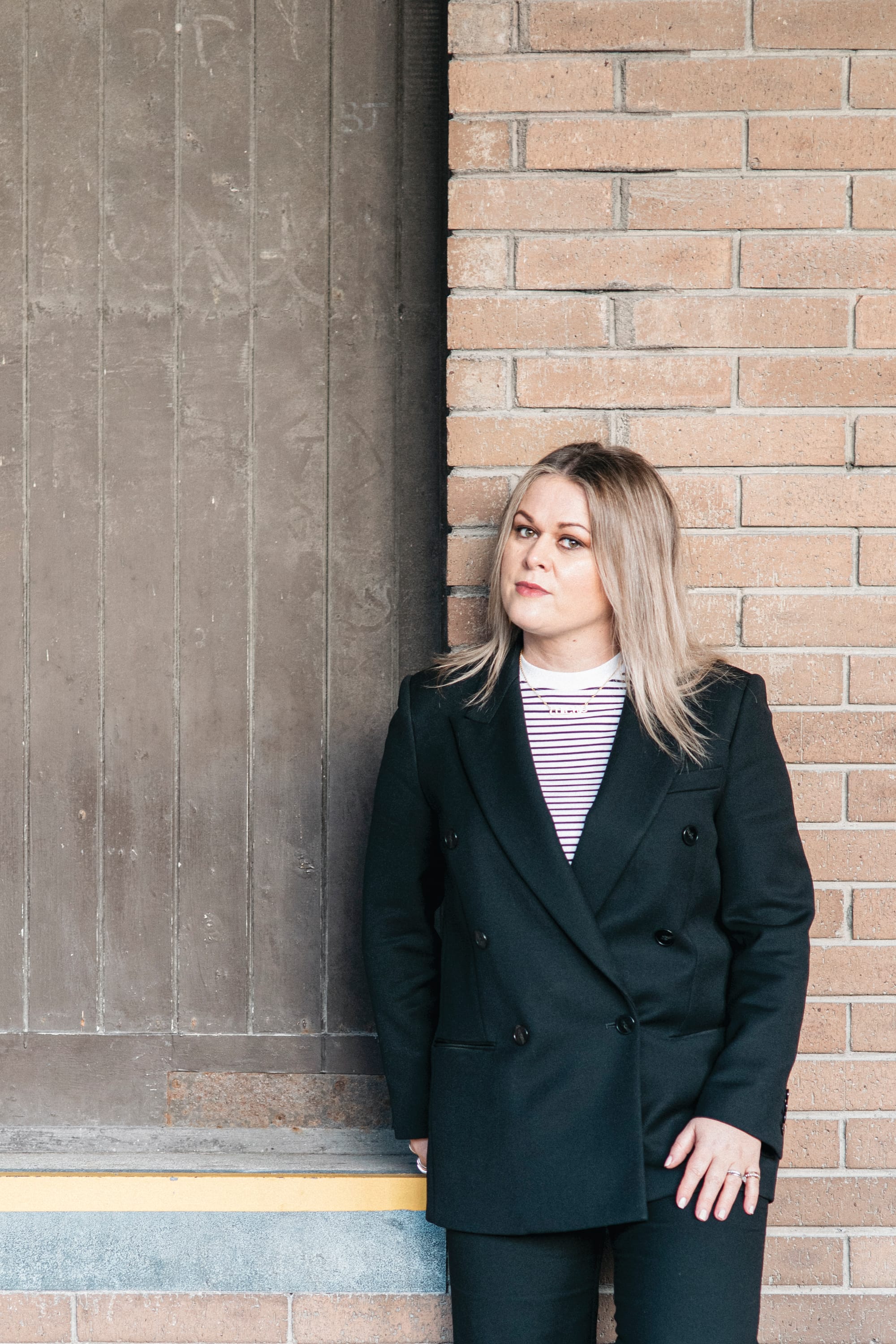Elaine Feeney on Storytelling, Success, and Life in the West

By Aoife Barry
Athenry author Elaine Feeney comes from a family of storytellers; people who found meaning in narrative. Today she carries on that tradition, expressing the truths of life through her three collections of poetry, two novels (As You Were and How To Build A Boat), and most recent poetry collection, All The Good Things You Deserve.
The warm and thoughtful Feeney chats to Galway Now from the front room of the Athenry home where she grew up, which she now shares with her husband and two sons. Behind her tower jam-packed bookshelves, the colourful reminder that this is a woman steeped in writing, and whose work has long given voice to the inner world of Irish women.
In whatever form she writes, her voice is always empathic, political and strong.
Last year was an incredible one for Feeney. How to Build a Boat (which tells the story of teenager Jamie, who wants to make contact with his dead mother Noelle by creating a perpetual motion machine) was longlisted for the prestigious Booker Prize alongside Sebastian Barry’s Old God’s Time, Paul Murray’s The Bee Sting and eventual winner Paul Lynch’s Prophet Song.
“It was a rollercoaster like I had never even really imagined,” she says. “I do what I often do: I started to think, how do I fit into this, and how should I be?” She laughs, jokingly adding: “I was like, should I change my hairstyle? Do I need tweeds? And then I thought: No, you've brought yourself this far, continue being who you are if you can.”
Navigating vulnerability and creative confidence
Fans of Feeney’s work will be surprised to hear she is “always racked with self-doubt”. “There's definitely a duality to my personality,” she says, describing an Elaine who pushes her work out into the public, and a more reticent Elaine. “I find the more I get to know writers, we have this absolute vulnerability and sensitivity, and then we have this ego that pushes the work out there,” she says, adding: “What I have to say to myself all the time is: it’s just a book.”
“I was always wrong in school. In creative writing, I could write something and I didn’t have to defend it in the same way.”
The roots of Feeney’s career lie in the early-2000s slam poetry events held by Galway Arts Centre in collaboration with Cúirt at the King’s Head. She “had loads of poems under the bed”, influenced by the musicality and rural expression in Patrick Kavanagh’s work. “It was one of the only things that you could create where you couldn’t be wrong,” she says of writing poetry. “I was always wrong in school. In creative writing, I could write something and I didn’t have to defend it in the same way.”


Left: Published by Harvill Secker/Viking, All the Good Things You Deserve is out now. Right: Feeney's Booker Prize nominated How to Build a Boat.
Her poetry gave her voice, a space to express how she felt about the need for change in Ireland. “Writing in the 90s and the noughties was a very different thing to what I’m writing now, because it was fuelled around women’s bodies, around autonomy, agency, gay rights and so on,” she continues. “So it was a totally different time in some ways - but actually...was it? We feel we’ve made all these leaps forward and then you go online and you’re back in this black hole of the internet.”
Writing from the west: inspiration, community, and creative freedom
Initially, she was “terrified” of writing a novel. As You Were is set in a hospital ward and came out of a serious illness she experienced – “one of those big moments in a person’s life where you evaluate everything” – and was published during lockdown. “There’s beauty and brutality to the human condition, and there’s a tension there that I’m always trying to investigate,” she says of what inspires her.
“There’s a creative spirit in the area. I think the proximity to the Atlantic definitely energises and has something to do with it.”
There’s inspiration too in the energy she feels from her homeplace and the generations that came before her. “I needle down into the space I live in, in a kind of [John] McGahern sense – he’s a very big influence to me. I’m always searching for the universal in the tiny microcosm around me.”

The west has birthed, and taken in, many great Irish writers - McGahern; Feeney’s University of Galway colleague Mike McCormack; Tom Murphy; Nuala O’Connor; Sally Rooney; Edel Coffey; Colin Barrett. “I think we take writing very seriously. We take art very seriously,” says Feeney. “There’s a creative spirit in the area. I think the proximity to the Atlantic definitely energises and has something to do with it. The landscape can be quite barren and rugged; there’s a real beauty – and it can be quite brutal as well.”
Alongside this is a “real respect” for writing and writers. “Also, there’s a playfulness I find with writers, and we have a very good community and we get along as friends. There doesn’t seem to me to be the spirit of brutal competition,” she says.
The poems in All the Good Things You Deserve started to flow in a stream of consciousness when she was writing the difficult ending to her second novel. “I was like, ‘Oh, my God, the poems are back’,” she laughs. “And they were wild, unwieldy sorts of things that were speaking to different voices.”
The collection contains her first-ever love poems. “It was quite an emotional journey for me, this one, and some of my most personal work ever,” she acknowledges.
As for book three, all Feeney can divulge for now is: “It’s very character driven. It’s the West of Ireland, but it’s a universal sort of love/hate story.”
She’s waiting for the novel to reveal more of itself to her, and says there’s no formula to writing: “I have to feel everything, unfortunately. Now I’m out in the fog with the phone light.” There’s that full-hearted laugh of hers again. “But it’s coming along.”
